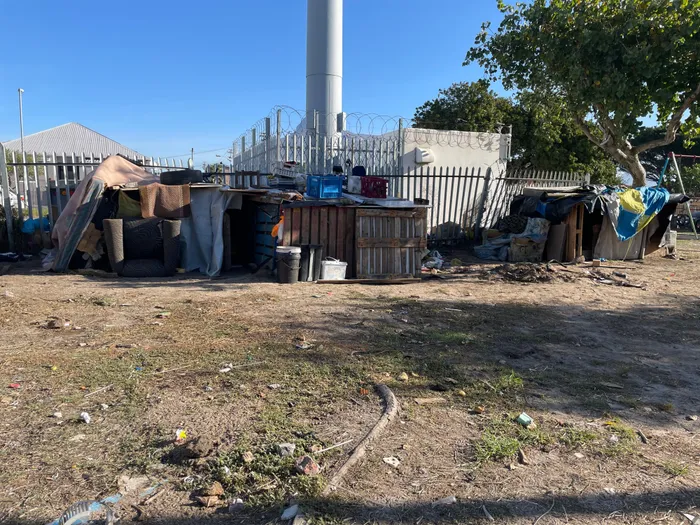Civics welcome by-law to stop land grabs

Brooklyn resident Lee van der Westhuizen says the area has seen an increase in vagrancy and the homeless refuse to go to shelters.
Land invaders could face up to two years in jail, and owners of empty plots will need to fence them and post anti-squatting signs, according to a draft by-law.
The public have until the end of the month to comment on the proposed by-law, which Mzwakhe Nqavashe, the City’s chairperson of the portfolio committee for safety and social services, says is meant to prevent land invasions and guide the City on how to control them in informal settlements and identify land needing basic services.
But some parts of the proposed by-law appear to conflict with last year’s Western Cape High Court judgement that stops the City from evicting anyone or demolishing their homes without a court order, during the national state of disaster. Meanwhile, the South African Human Rights Commission’s bid to permanently stop the City from being able to immediately retake invaded land is currently before the court.
The 14-page draft by-law says the City, upon learning of an invasion of municipal land, must take steps to prevent it, including closing surrounding roads, stopping vehicles carrying people or their possessions and building materials, and warning land invaders to stay off the site. Those already occupying the land will be forced to remove building materials, dismantle structures and get off the land.
Those who fail to comply could be arrested and jailed for up to two years or fined. Drivers who do not obey the by-law could have both their vehicles and the building materials they are hauling impounded.
Failure to pay impoundments fee for their release could lead to materials and vehicles, being destroyed or sold by the City.
The draft says both the City and private land owners must fence vacant parcels of land and post signs prohibiting unlawful occupation.
If land is allocated for people, the City must establish managed settlements for those evicted from other areas; provide basic-services infrastructure and demarcated sites with unique addresses that are legibly and prominently marked; and record the name, identity number and contact details of the head of the household and how many people make up the household.
The City may run an account for the rent or levy charged for occupation of the site and the services provided.
Bouwe van der Eems, vice chairman of the Milnerton Ratepayers’ and Residents’ Association, said he had seen how land owners could lose their property to land invaders with none or very little help from their lawyers, so the by-law could be a solution to that problem.
However, there were several obligations the City would find it impossible to meet, for example, ensuring addresses were clearly marked on dwellings and keeping records of each dwelling’s occupants.
Moving people to managed settlements, was “a step in the right direction”, but illegal occupants of City-owned land were leasing and selling the land and dwellings to others looking for homes. “There is no reason to believe that this will be any different,” he said.
The managed settlements could also drop the property values of homes in surrounding communities and drive up crime there too, he said.
Greater Table View Action Forum chairwoman Karen Davis said: “We would most certainly welcome this by-law.”
It was not in the organisation’s best interest to have the area looking degraded, dirty and unkempt, she said. Homeless people in the area, she said, were being opportunistic because they did not want to follow the rules at shelters.
The by-law would let residents and ratepayers feel their rights were being protected. “In the current situation, these homeless people and illegal occupiers have more rights than the people who pay for services do,” she said.
Brooklyn resident Lee van der Westhuizen, who lives opposite Vasco Park, said the by-law would help those living in makeshift shacks and tents in the park. “I am in full favour of this by-law,” she said.
Brooklyn had seen an increase in vagrancy, and the homeless refused to go to shelters, she said.
Sandra Dickson, from Stop City of Cape Town (COCT), said the by-law would clear up uncertainty around dealing with illegal occupants of municipal and private land and buildings.
“This by-law should attract much attention from the public as it is an issue that widely affects everyone living in Cape Town,” she said.
The City had made it clear, she added, that the measures described in the by-law would be preventative in nature as the country’s laws moved away from forced removals.
View the draft at www.capetown.gov.za/haveyoursay, at sub-council offices and City libraries. Saturday, July 31 is the deadline for comment and objections, which can be emailed to unlawful.occupation@capetown.gov.za.